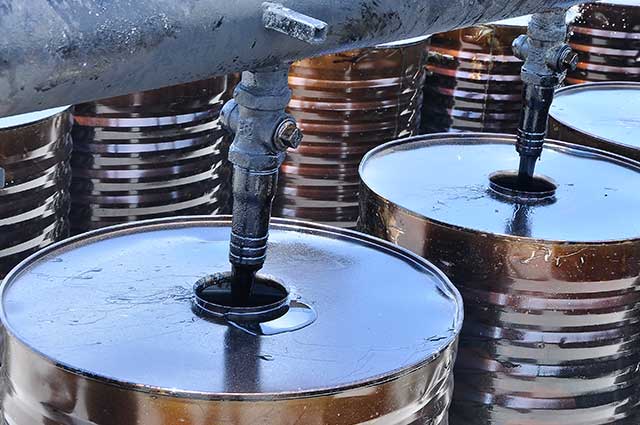Viscosity Grade Bitumen 10 Description
Viscosity grade of bitumens are categorized according to Viscosity (degree of fluidity) grading. The higher the grade, the stiffer the Bitumen. In Viscosity Grade, Viscosity tests are conducted at 60°C and 135°C, which represents the temperature of road surface during summer and mixing temperature respectively. The penetration at 25°C, which is annual average pavement temperature, has been also retained in Specifications. Viscosity Grade Bitumen 10 is mostly used in spraying applications such as paving in cold regions. VG 10 is an alternative for bitumen 80/100 penetration grade . It also acts as a feedstock in manufacturing Bitumen Emulsion and Modified Bitumen products.
Viscosity grade of bitumen can be done on original (as-supplied) asphalt binder samples (called AC grading) or aged residue samples (called AR grading). The AR viscosity test is based on the viscosity of aged residue from the rolling thin film oven test. With AC grading, the asphalt binder is characterized by the properties it possesses before it undergoes the HMA manufacturing process. The AR grading system is an attempt to simulate asphalt binder properties after it undergoes a typical HMA manufacturing process and thus, it should be more representative of how asphalt binder behaves in HMA pavements. Table 1 lists key advantages and disadvantages of the viscosity grading system.
Viscosity Grade Bitumen 10 Applications
Spraying applications, Paving
Packing
New Steel Drum, Bulk, and other packings based on the customers’ demands.

VG-10 Specification
| PROPERTIES | SPECIFICATIONS |
|---|---|
| Absolute Viscosity, 60°C, poises, min | 800 |
| Kinematic Viscosity, 135°C, CST, min | 250 |
| Flash point, C, min | 220 |
| Solubility in trichloroethylene, %, min | 99.0 |
| Penetration at 25°C | 80-100 |
| Softening point, C, min | 40 |
| Viscosity ratio at 60°C, max | 4.0 |
| Ductility at 25°C, cm, min, (after thin film over test) | 75 |
